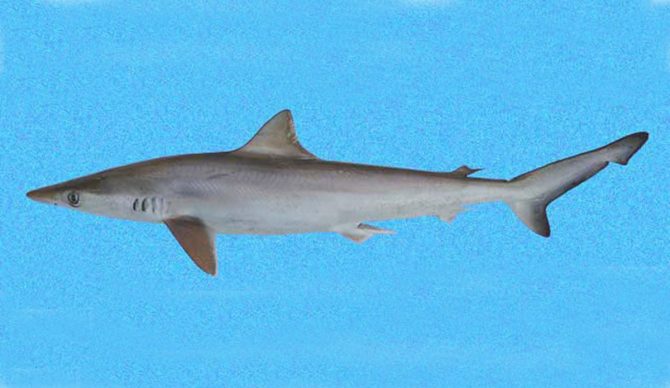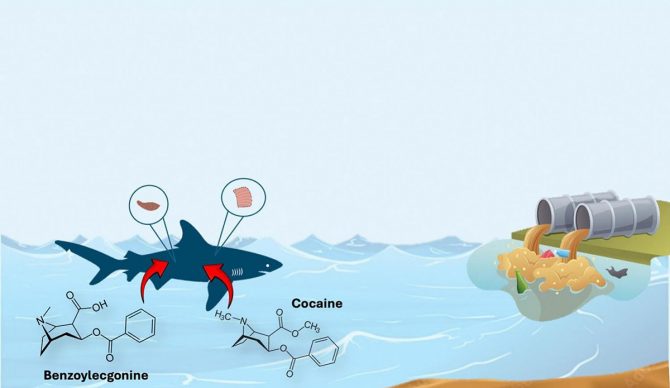
Sharpnose sharks, which are apparently finding free drugs in the waters off Brazil. Photo: WIkimedia Commons
If you’ve been on the internet in the last few years, you’ve likely ran into a story or two about the possible existence of “cocaine sharks.” Most of them were just theories, but with the amount of cocaine that’s lost every year in the ocean, it’s not impossible that a shark or two has, in fact, made a meal out of a bale of Columbian marching powder. And as it turns out, a team of scientists found that some sharks living in the coastal waters of Brazil are indeed cocaine sharks.
The scientists recently published their findings in the journal Science of the Total Environment.
“This is the first COC and BE report for free-ranging sharks worldwide,” the researchers wrote. “Cocaine (COC) and benzoylecgonine (BE) were detected in Brazilian Sharpnose sharks.”
These aren’t sharks that just like to party, obviously. The researchers believe that the drug is making its way into the sharks because of a few main factors: one, because cocaine is relatively popular in Brazil. Two, because the sewage treatment there isn’t all that spectacular. Three, those bales of drugs that are frequently found floating around in the ocean.
To figure out if sharks in the area were actually ingesting cocaine, the team of scientists looked at 13 Brazilian sharpnose sharks that were caught off the coast of Rio De Janeiro. Since sharpnose sharks live entirely in coastal areas, they’re more likely to have gotten a little taste of whatever is floating around out there.

The study’s authors came up with a handy little graphic that looks like it should be in a children’s book. Image: Science of the Total Environment
The researchers weighed and measured the sharks, then took muscle and liver samples for testing. Of the 13 sharks, every single sample tested positive for cocaine. Ninety-two percent of the muscle samples were positive and 23 percent of the liver samples had traces of benzoylecgonine, which is the major metabolite of cocaine.
What’s not clear, however, is how the cocaine affected the sharks. The findings have authorities worried for a few reasons, and one of the top reasons is that if cocaine is in sharks, it’s likely in other fish. And since the food chain is going to food chain, that might mean that anyone eating those fish is also eating the cocaine in them.
“Although no maximum permissible concentrations for COC or BE have been established in foodstuffs, these findings are indicative of potential human health risks, as sharks are highly consumed in the state of Rio de Janeiro, in fact, throughout the entire Brazilian territory and indeed, worldwide,” the authors wrote. “Ultimately, proactive measures are imperative to mitigate the ecological and public health risks associated with COC contamination in marine environments and ensure the health and balance of coastal ecosystems.”

